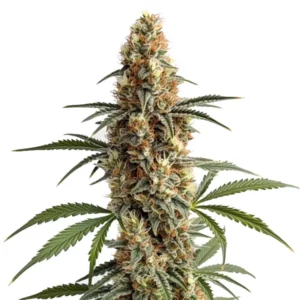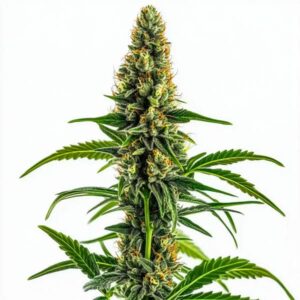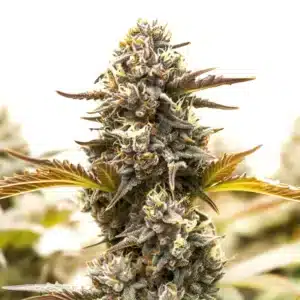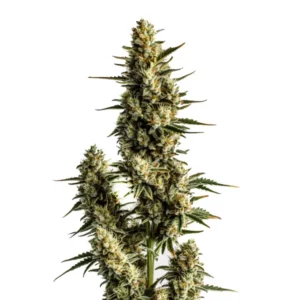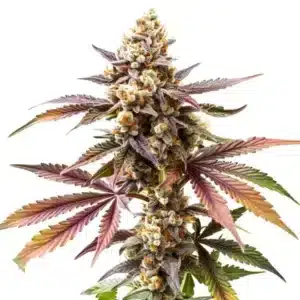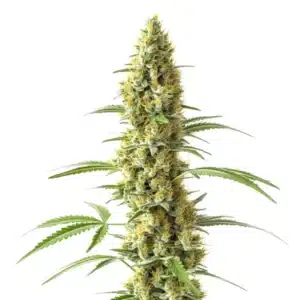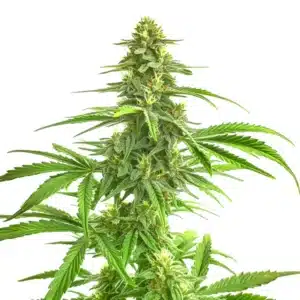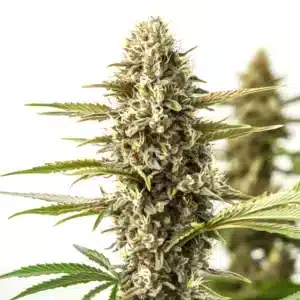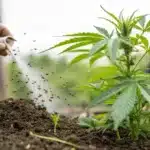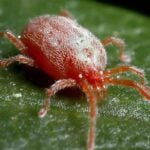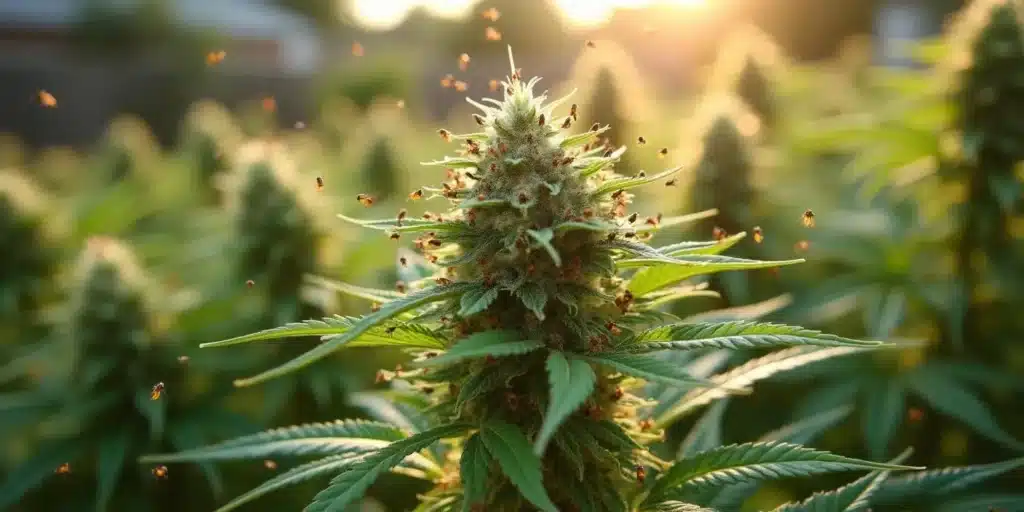
Dealing with Gnats in Cannabis Plants
For both first-time cannabis seed buyers and experienced growers, dealing with pests can be a daunting task. Among them, gnats in cannabis plants are particularly pesky. They can cause significant damage to your crop, impacting overall yield and quality of your buds.
Recognizing the signs of gnat infestation in cannabis plants is the first step towards effective pest management. The presence of these tiny flying insects hovering around your indoor or outdoor cannabis garden is a clear indication of infestation. Apart from this, yellowing leaves, stunted growth, and wilting are other signs that your cannabis plants might be under attack from gnats.
Recommended Strains
Mamba Negra
|
|
THC | 18% (Medium) |
|
|
Type | Feminized |
|
|
Yield | High |
|
|
Phenotype | 55% Indica / 45% Sativa |
Mamba Negra CBD
|
|
CBD | 10% – 20% (Medium) |
|
|
Type | CBD Feminized |
|
|
Yield | High |
|
|
Phenotype | 70% Indica / 30% Sativa |
The effects of gnats on cannabis plants can be severe, especially if they’re left untreated. Gnats feed on the plant roots, impairing their ability to absorb water and nutrients. This can lead to plant stress, reduced growth, and in the worst-case scenario, plant death.
Understanding the life cycle of gnats can also be helpful in dealing with an infestation. These pests reproduce rapidly, with females laying up to 200 eggs at a time. The eggs hatch into larvae, which feed on plant roots and organic matter in the soil. The larvae then pupate and emerge as adults, ready to reproduce and continue the cycle.
How to Prevent Gnats in Cannabis Plants
Preventing gnats in cannabis plants is much easier and cost-effective than treating an infestation. A well-maintained growing environment is essential in keeping gnats at bay. Ensure proper sanitation in your garden, remove dead plant material promptly, and avoid overwatering as gnats are attracted to damp soil conditions.
Another effective preventive measure is to introduce beneficial insects into your garden that prey on gnats. Insects such as ladybugs, lacewings, and predatory mites can help keep gnat populations under control. However, these beneficial insects work best in outdoor gardens as maintaining them in an indoor setting can be challenging.
When it comes to how to prevent gnats in cannabis plants, another preventive measure is to use a soilless growing medium. Gnats are drawn to moist soil, so using alternatives like coco coir, Rockwool, or hydroponics can help deter these pests. Additionally, covering the surface of your growing medium with a layer of perlite can prevent gnats from laying their eggs in the soil.
It’s also worth investing in proper ventilation for your cannabis garden. Gnats are more likely to thrive in stagnant air conditions. A well-ventilated space not only makes it harder for gnats to fly, but it also helps to dry out the top layer of your soil, making it less attractive for gnats to lay their eggs.
Promos & Deals
Treatment for Gnats in Cannabis Plants
Once you’ve identified a gnat infestation in your cannabis garden, swift action is necessary to save your plants. There are several organic remedies for gnats in cannabis that are safe and effective. Neem oil, for instance, is a natural insecticide that can be sprayed directly onto the plants and soil to kill and repel gnats. It’s advisable to follow the manufacturer’s directions for use to avoid causing harm to your plants.
Another organic treatment for gnats in cannabis plants is the use of diatomaceous earth. This powdery substance is made from the fossilized remains of tiny aquatic organisms known as diatoms. When gnats come into contact with diatomaceous earth, it kills them by causing them to dehydrate. Simply sprinkle it on the top layer of your soil to keep gnats at bay.
When dealing with a treatment for gnats in cannabis plants, sticky traps can also be a useful tool. Gnats are attracted to the color yellow, so placing yellow sticky traps around your plants can help to catch adult gnats, reducing their population and limiting their ability to reproduce.
Regular inspection of your plants is also essential to manage and control a gnat infestation. By regularly checking your plants, you can catch the signs of gnat infestation in cannabis plants early and take immediate action. This can prevent a small problem from turning into a full-blown infestation.
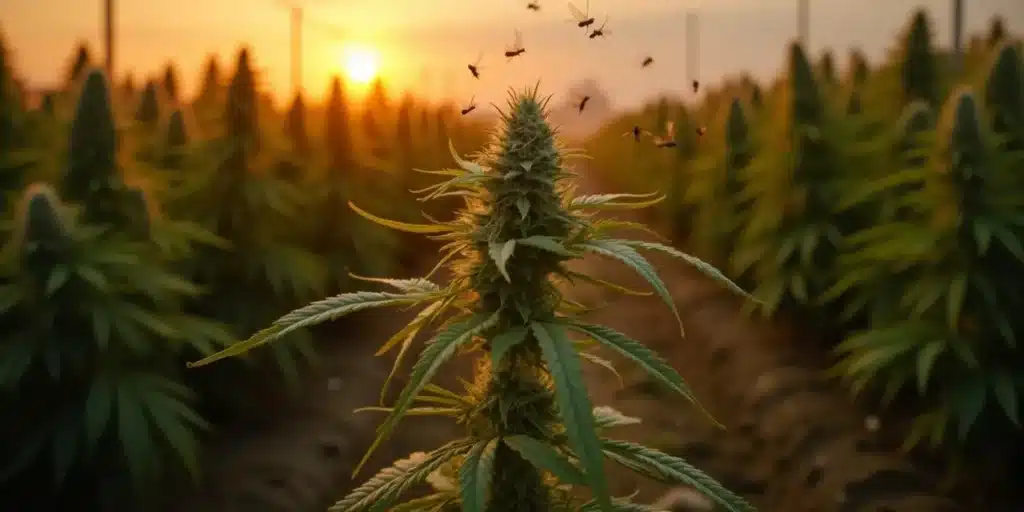
Choosing Resilient Cannabis Strains
Choosing resilient cannabis strains can also help in managing gnats in cannabis plants. Certain strains are known for their resistance to pests and diseases, making them ideal for growers dealing with pest issues. Blimburn Seeds offers several such strains, including the Mamba Negra, Wombat, and Orient Auto.
The Mamba Negra is a hybrid strain known for its robust growth and high resistance to pests and diseases. Similarly, the Wombat is a potent strain that’s not only pest-resistant but also produces large, dense buds. The Orient Auto, on the other hand, is an autoflowering strain ideal for beginners due to its easy growth and high resistance to pests.
Rotating your cannabis strains can also help in managing gnats in cannabis plants. By changing the types of plants you grow, you can disrupt the life cycle of gnats and other pests. This can prevent them from becoming too comfortable in your garden, reducing the likelihood of an infestation.
Furthermore, proper handling and storage of your cannabis seeds can also play a significant role in preventing a gnat infestation. Always store your cannabis seeds in a cool, dry place to prevent attracting gnats and other pests. When you’re ready to plant your seeds, ensure that your growing medium is clean and free from pests.
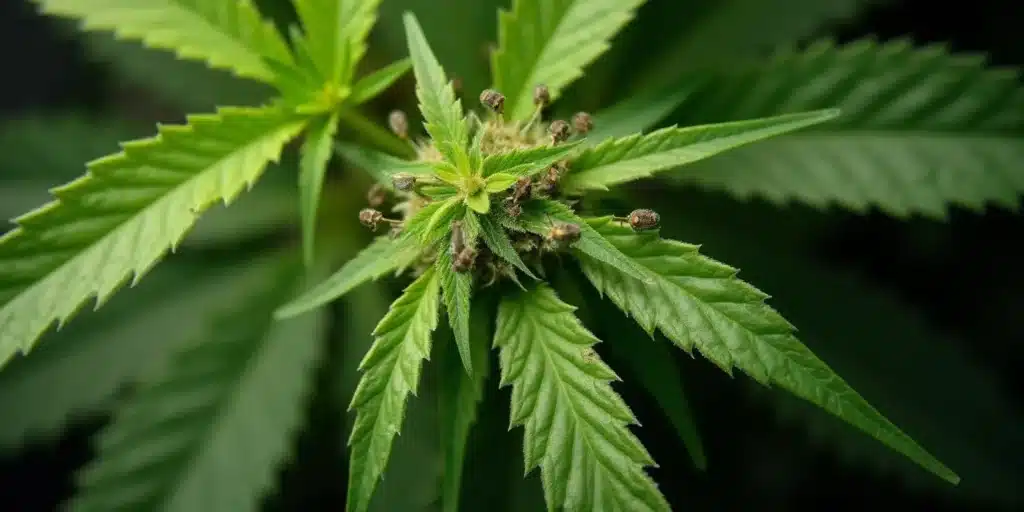
FAQs
Why are gnats attracted to cannabis plants?
Gnats are attracted to cannabis plants for the same reasons they’re attracted to any plant. They’re drawn to the damp soil conditions that are often found in cannabis gardens, particularly those that are overwatered. Gnats lay their eggs in this moist soil, and their larvae feed on the organic matter in the soil as well as the plant roots.
Besides, cannabis plants offer an abundant food source for gnats. The rich, nutritious soil that cannabis plants are grown in is ideal for gnats to thrive. Therefore, maintaining proper watering practices and soil conditions is crucial in preventing a gnat infestation.
Moreover, gnats are also attracted to the high humidity levels that are often found in cannabis gardens. By properly managing your garden’s humidity levels, you can make it less inviting for gnats. Using a dehumidifier in indoor gardens, or choosing the right time to water in outdoor gardens, can help maintain optimal humidity levels that deter gnats.
It’s also important to note that gnats can be attracted to overripe or decaying plant matter. Regularly inspecting your cannabis plants and promptly removing any fallen leaves or overripe buds can help prevent attracting gnats to your garden.
How can I prevent gnats from returning?
Preventing gnats from returning involves maintaining a clean growing environment and regularly checking for signs of infestation. Remove dead plant material promptly, avoid overwatering, and ensure proper ventilation in your garden. These practices create unfavorable conditions for gnats, deterring them from laying eggs in your garden.
Moreover, natural predators of gnats like ladybugs, lacewings, and predatory mites can be introduced into your garden to help keep the gnat population under control. Regular use of organic insecticides like neem oil can also help in preventing a gnat infestation from recurring.
Additionally, practicing crop rotation can also be an effective way to prevent gnats from returning. By regularly changing the types of plants you grow, you can disrupt the life cycle of gnats, making it harder for them to establish a population in your garden.
Finally, it’s important to remember that prevention is always better than cure. By learning how to prevent gnats in cannabis plants and taking the necessary precautions, you can significantly reduce the likelihood of a gnat infestation in your garden.
Are gnats harmful to humans?
While gnats are a nuisance to cannabis growers, they’re generally not harmful to humans. Unlike mosquitoes, most species of gnats do not bite or spread diseases. However, they can be annoying as they often swarm in large numbers, especially around damp areas or food sources.
It’s worth noting that although gnats pose little threat to humans, they can cause significant damage to your cannabis plants. Therefore, it’s essential to address a gnat infestation promptly to protect your crop and ensure a healthy yield.
In some cases, gnats can become a nuisance to humans, especially if they swarm in large numbers. While they do not bite or spread diseases, their constant buzzing can be annoying. Moreover, some people might have allergic reactions to gnat bites, although this is quite rare.
Although gnats are generally harmless to humans, they can have a significant impact on the health and yield of your cannabis plants. The effects of gnats on cannabis plants can lead to stunted growth, yellowing leaves, and even the death of the plant. Therefore, it’s important to take action at the first signs of gnat infestation in cannabis plants.
Can gnats affect the quality of my buds?
Absolutely. As gnats feed on the roots of your cannabis plants, they can cause considerable damage that leads to plant stress. This stress can affect the overall health of your plants, resulting in smaller, less potent buds. Moreover, a severe gnat infestation can even lead to plant death, significantly affecting your yield.
Therefore, it’s crucial to treat a gnat infestation promptly and effectively. Using organic remedies for gnats in cannabis, maintaining a clean growing environment, and choosing pest-resistant strains can all help in ensuring the quality of your buds.
Not only can gnats affect the size and potency of your buds, but they can also impact the flavor and aroma of your cannabis. The stress caused by a gnat infestation can cause your plants to produce less terpenes and cannabinoids, the compounds responsible for the unique flavors and effects of cannabis. This can lead to a less enjoyable smoking or vaping experience.
Furthermore, if a gnat infestation is not addressed promptly, the gnats can spread diseases to your cannabis plants. These diseases can further compromise the quality of your buds, and in severe cases, they can render your entire crop unusable. Therefore, it’s important to take action at the first signs of a gnat infestation.
Can I use chemical pesticides to control gnats?
While chemical pesticides can be effective in controlling gnats, they’re generally not recommended for use on cannabis plants. Many of these pesticides leave residues on the plants that can be harmful when consumed. Moreover, overuse of chemical pesticides can lead to pesticide resistance in gnats, making them harder to control in the long run.
As an alternative, consider using organic remedies for gnats in cannabis. These treatments are not only safer for your plants and the environment, but they can also be equally effective in controlling gnats. Examples of organic treatments include neem oil, diatomaceous earth, and the introduction of beneficial insects.
It’s also worth noting that there are some chemical pesticides available that are specifically designed for use on edible crops, including cannabis. These products are generally considered safe for use on cannabis plants, but they should still be used sparingly and as a last resort. Always follow the manufacturer’s instructions when using any type of pesticide.
When considering the use of chemical pesticides, it’s also important to consider the potential impact on the environment. Many pesticides are harmful to non-target organisms and can cause damage to the surrounding ecosystem. Therefore, whenever possible, it’s best to opt for organic remedies for gnats in cannabis plants.


